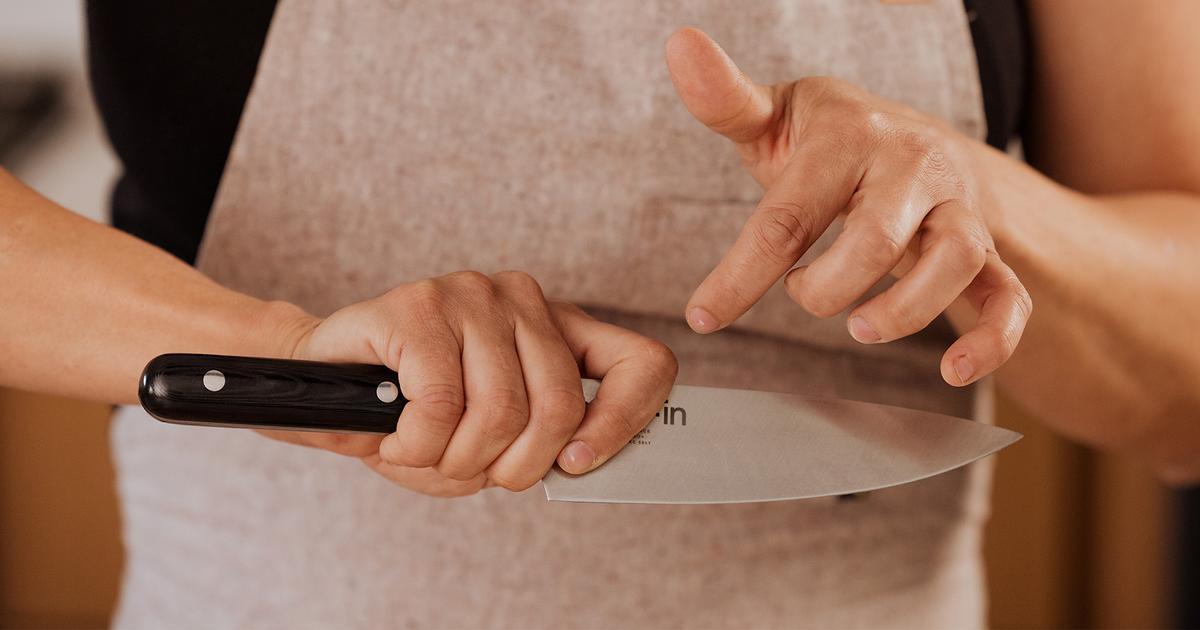In the culinary world, the importance of a high-quality knife cannot be overstated. For many kitchen professionals, the best German knives for chefs stand as a gold standard of excellence. Known for their exceptional craftsmanship and durability, these knives are a staple in many professional kitchens. In this article, we will explore what makes German knives a top choice for chefs, and how to select the best one for your needs.

The Heritage of German Knife Craftsmanship
German knives have a rich history that dates back centuries. The town of Solingen, often referred to as the 'City of Blades', is renowned for producing some of the finest knives in the world. This region has mastered the art of knife-making, combining traditional techniques with modern technology to create knives that are both durable and precise.
German knives are typically made from high-carbon stainless steel, which makes them resistant to stains and rust. This material is known for its strength and ability to hold a sharp edge, making it ideal for professional chefs who require reliability in their tools. For a deeper dive into the history of German knife-making, visit this historical overview.
Why Choose German Knives?
When it comes to selecting the best German knives for chefs, there are several factors to consider. Firstly, German knives are known for their weight and balance. They tend to be heavier than their Japanese counterparts, providing a solid feel that many chefs prefer.
The bolster, which is the thick junction between the handle and the blade, is another characteristic feature of German knives. It provides balance and helps protect the user's hand during cutting tasks. This design is particularly beneficial for chefs who spend long hours in the kitchen and require comfort and safety in their tools.
Durability and Maintenance
One of the key advantages of German knives is their durability. These knives are built to withstand the rigors of a busy kitchen, making them a worthwhile investment. However, like any high-quality tool, they require proper maintenance to ensure longevity. Regular sharpening and cleaning are essential to keep your knives in peak condition. For tips on maintaining your German knives, check out this maintenance guide.
Top Picks for Professional Chefs
As a kitchen professional, choosing the right knife is crucial. Here are some top picks for the best German knives for chefs:
Wsthof Classic Chef's Knife
Wsthof is a brand synonymous with quality and craftsmanship. The Wsthof Classic Chef's Knife is a versatile tool that can handle a variety of tasks, from chopping vegetables to slicing meat. Its full tang construction provides excellent balance, and the high-carbon stainless steel blade ensures a sharp, long-lasting edge. For an in-depth review, visit this Wsthof review.
Zwilling J.A. Henckels Pro Chef's Knife
Another top contender is the Zwilling J.A. Henckels Pro Chef's Knife. Known for its innovative design and ergonomic handle, this knife offers superior comfort and control. The blade is precision-forged from a single piece of steel, ensuring strength and durability. Discover more about this knife in this inside look at the cutlery center.
Making the Right Choice
When selecting the best German knives for chefs, it's important to consider your specific needs. Think about the types of tasks you'll be performing most often and choose a knife that feels comfortable in your hand. Remember, a good knife is an investment in your culinary career, so it's worth taking the time to make the right choice.
For those interested in understanding the hardness rating of German knives, which can affect durability and edge retention, refer to this hardness rating guide.
Final Thoughts on German Knives
In conclusion, the best German knives for chefs offer a perfect blend of quality, durability, and performance. Whether you're a seasoned professional or just starting in the culinary world, investing in a high-quality German knife can make a significant difference in your kitchen experience.
For more information on what makes a knife distinctly German, explore this insightful article.

FAQ
What is the difference between German and Japanese knives?
German knives are typically heavier and have a thicker blade, while Japanese knives are lighter and have a thinner, sharper edge. The choice depends on personal preference and the type of cuisine you are preparing.
How often should I sharpen my German knife?
It's recommended to sharpen your German knife every few months, depending on usage. Regular honing can help maintain the edge between sharpenings.
Are German knives dishwasher safe?
While some German knives claim to be dishwasher safe, it's best to hand wash them to preserve the blade's sharpness and overall knife integrity.


























